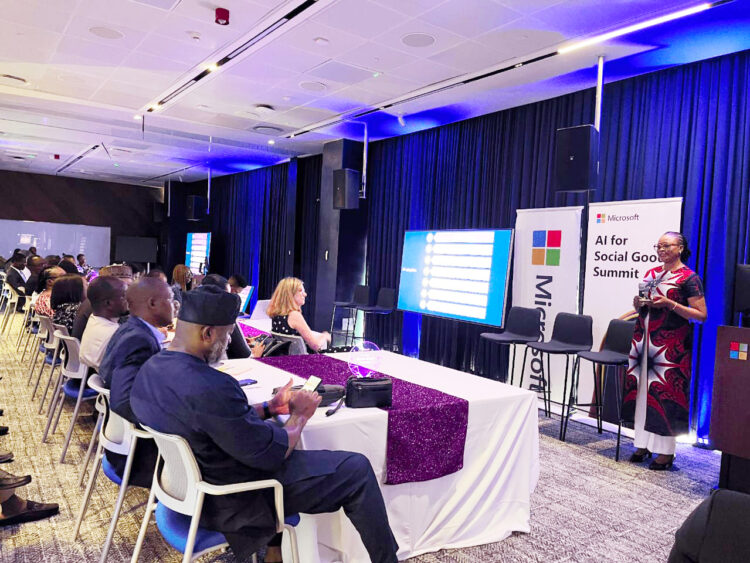
Microsoft and Data Science Nigeria (DSN) have collaborated to equip non-profits with the Artificial Intelligence (AI) tools and knowledge they need to amplify their impact and create a more prosperous and sustainable future.
This is even as the organisations have hosted the inaugural AI for Non-Profit Organisations and Social Good Summit, at Microsoft’s Lagos office.
The summit gathered leaders from various sectors and non-governmental organisations (NGOs) to learn and network collaboratively, showcasing the transformative potential of AI for non-profits and social enterprises.
AI offers great potential for non-profits to transform their social impact interventions at scale. As a
general-purpose technology, it can improve the quality of lives of citizens in various sectors, such as
health, financial inclusion, agriculture, and education. By showcasing how AI can significantly improve
efficiency, scale impact, and address socio-economic challenges, the summit demonstrated the relevance and importance of AI for low-resourced countries like Nigeria.
Sub-Saharan Africa (SSA) philanthropies lead at Microsoft, Winnie Karanu, reaffirmed Microsoft’s commitment to driving AI transformation in the sector, stating that, “At Microsoft, we believe
that AI can be a powerful force for good in Nigeria, where it can help solve some of the most pressing challenges facing the country. That is why we are dedicated to equipping non-profits with the AI tools and knowledge they need to amplify their impact and create a more prosperous and sustainable
future for all.”
An engaging panel discussion moderated by CEO/founder of Data Science Nigeria, Dr. Bayo Adekanmbi, focused on the role of AI in social good, sharing practical examples and emphasising the importance of ethical AI development. The panel included top professionals such as a senior lecturer from the University of Lagos and one of the principal investigators of the EduAI Hub, Dr. Oladipupo Sennaike; executive director of MTN Foundation, Ms. Odunayo Sanya; information management officer and expert on Humanitarian Affairs, Dr. Frederick Atenaga, and head ICT and vice president of GIEVA, who is also the grant winner of the renowned Microsoft and DataDotOrg Grant, Mr. Sunday Taiwo.
Participants at the Summit also engaged in hands-on workshops, acquiring practical AI skills to apply in
their organizations, and explored a variety of cutting-edge digital tools designed to enhance the social
impact of non-profits. These sessions provided a great opportunity to demonstrate emerging AI
applications for key non-profit operations such as fundraising, program planning, human resource
management, partner management, outreach optimization, personalised donor management, and
precision-based intervention.
Reliance Infosystems Limited, a Microsoft Tech for Social Impact Partner, made a substantial contribution by demonstrating non-profit industry innovation on Microsoft business applications. Its focus included fundraising and engagement, volunteer management, and program impact dashboards.
Microsoft and DSN share a vision of digital inclusivity and skills development for non-profits. This mission is supported by Microsoft’s Philanthropies team, which also partners with the Federal Government of Nigeria to provide digital skills across the country through the Digital Skills Nigeria
platform.
CEO of DSN, Dr. Bayo Adekanmbi, highlighted the importance of ongoing AI capacity development efforts, adding that, “Our collaboration with Microsoft aims to equip Nigerian non-profits with the skills needed to create inclusive and equitable AI applications. This initiative will enable these organizations to address critical issues in health, finance, agriculture, and education, focusing on the practical application of AI across sectors.”
Ultimately, the collaboration hopes to drive significant social impact in Nigeria by demonstrating the potential for AI to support social good initiatives and offering practical insights on how to leverage the technology for programmatic and capacity development purposes.
Copied
